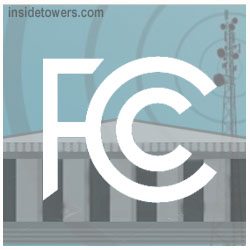DISH Network successfully defeated a lawsuit on Monday brought against it by Vermont National Telephone Company. The whistleblower accused the satellite provider of using fake companies to buy spectrum at an FCC auction at a $3.3 billion discount. Law360 reported that a Washington, D.C. federal judge dismissed the case, finding that the allegations didn’t hold up under the False Claims Act’s “government-action bar” or the law’s materiality standard.
The suit claims that DISH Network manipulated the FCC’s rules during Auction 97 in November 2014 to secure fraudulent small business discounts on licenses. The Commission allows “designated entities,” including small businesses, to obtain spectrum licenses at a discount to ensure equal distribution of the licenses, according to the account.
Vermont Telephone claims the defendant used a subsidiary (American I) and created two shell companies, Northstar Wireless and SNR Wireless, to obtain discounts. The plaintiff alleges that DISH Network intended to use the licenses for its national network but failed to disclose it to the FCC.
During the auction, Vermont Telephone alleges that American I, Northstar Wireless, and SNR Wireless coordinated a bidding scheme at the direction of DISH, creating “the illusion of high demand on blocks sought by the DISH-Controlling Defendants and to deter competitors from bidding on those blocks.” After competitors dropped out, so did American I, leaving the spectrum to either Northstar or SNR, eligible for the bidding credits for very small businesses.
At the close of the auction, American I walked away with zero spectrum licenses, while Northstar and SNR collectively won 702 of the 1,611 spectrum licenses up for auction. The licenses were worth $13.3 billion, but due to the small business discount (25 percent), the companies secured the spectrum for $10 billion.
In May 2015, seven parties, including Vermont Telephone, filed a petition with the FCC to deny Northstar Wireless and SNR Wireless’ application, reported Law360. In August 2015, the agency ruled that DISH should have disclosed their interest in Northstar and SNR, denying eligibility “for very small business bidding credits.” The FCC did not find that Northstar Wireless and SNR Wireless had made any “material misrepresentations” or failed to disclose agreements on their FCC application forms. However, in April 2015, the Commission accepted both Northstar and SNR’s long-form applications. The FCC determined “that the companies could retain the spectrum licenses they won in the auction if they were willing to pay full price for them.”
Following the agency’s order, Northstar Wireless and SNR Wireless notified the FCC “that they would pay the full bid amount for some of the licenses they won and would default on their obligation to buy the rest.” The companies defaulted on 28 percent of the licenses won at auction and were required to pay reparations to the U.S. Treasury.




Reader Interactions